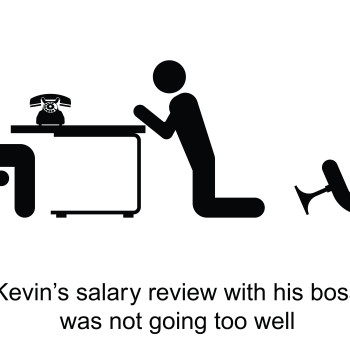How to negotiate a raise

With the recession over in theory, Barry Whelan, MD of Excel Recruitment advises the best approach to take when looking for a salary hike
11 February 2015
We hear in the media that the age of austerity is coming to an end. This being the case, perhaps it might be time to ask for that long overdue pay rise? But before you jump in with your size 10s, why don’t you try these tips before asking for your raise.
Salary negotiations can be difficult. People don’t like to talk about money, many people don’t ask for a raise or negotiate a salary offer because it makes them uncomfortable, they’re nervous or they don’t want to seem too pushy.
However, most employers fully expect current and prospective employees to negotiate for more money and it usually pays to ask.
Firstly build your business case
Gather information together to show your boss why you deserve a raise and why the business can sustain that increase in cost. If you are an above-average performer who is significantly contributing to the bottom line, this gives you a strong case for getting a raise. There does have to be a business case. If the business is performing particularly well or profits are on the rise and your contribution to this is evident, then the overall company performance can be a valid reason enough. However, it’s not enough that you want the raise or even that you think you deserve it if the business is not there and the company is not performing.
Use your performance review to provide support. Also, point out specific examples and successful milestones that show you’ve gone above and beyond your daily responsibilities. Document the ways which you have helped your company achieve its goals and highlight the pivotal roles you have played.
Secondly, research the market
Know the going rate for your experience. Ask an expert, look on salary websites such as Glassdoor.com. One of the best bargaining tools you have in negotiating a raise is to know how much the market pays for your role and therefore how much you are worth. What you need, want and get are three different things and whilst you may know what you want, knowing what you’re worth is a powerful tool in negotiation. You may know how much you want, but you also have to find out how much you are able to ask for.
Also, talk to recruiters in your field and ask them if the salary estimates you have found are accurate.
Lastly, rehearse your pitch
Once you’ve built your case and gathered market data, make sure you present the information concisely and persuasively. Practice making the request with a mentor or someone who can give you a sense of what to expect before the meeting. Don’t let the first time you are asking for a raise be in the actual meeting with your boss. Rehearse and practice like you would any other sales meeting.
According to Payscale.com, only 43% of the 31,000 respondents in a survey released last month say they’ve asked for a raise and Salary.com found 55% of employees didn’t ask for more money during the last 12 months – and 23% have never asked.
If the salary review you want does not materialise, don’t be too disappointed if you get shot down. Use it as an opportunity to start planning and building your case for your next request.
//ENDS//



 Print
Print




Fans 0
Followers